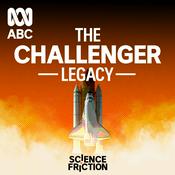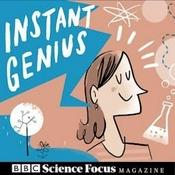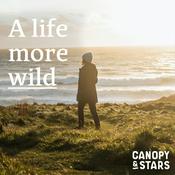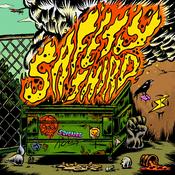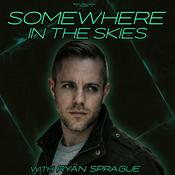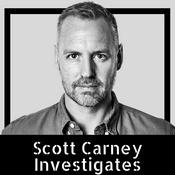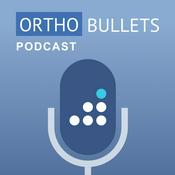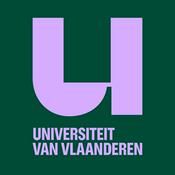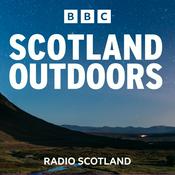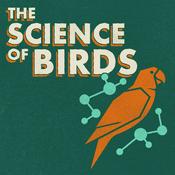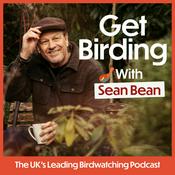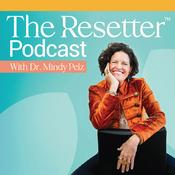46 episodes
- Isabella’s guest is Harriet Rix, the Indiana Jones of tree science. She’s chased down rare trees in some of the remotest, wildest places in the world, and in the UK she’s worked for DEFRA, researching tree diseases and strategies for trees in cities. Her latest book The Genius of Trees explains how trees have influenced, even controlled, life on our planet.
Wandering through the ancient oaks and young saplings of Knepp’s scrubland, Harriet opens up a perspective of millions of years of tree evolution. Far from being static and vulnerable, as we tend to think of them, trees are resilient survivors, agents of their own destiny – and quite possibly ours. Harriet explains the secrets of genetic diversity and how, by encouraging natural regeneration as we do at Knepp, we can help trees adapt to climate change and resist disease. She shares extraordinary insights, including that the English oak, our country’s pride and joy, is originally American.
Isabella Tree co-founded the Knepp rewilding project with her husband, Charlie Burrell. She is an award-winning author, including of the best-selling book, Wilding: the return of nature to a British farm, which was made into a major motion picture in 2024.
Send us a message or leave a comment
Find out more about Knepp on our website and why not follow us on Instagram? - Not according to Mark Elliot, beaver expert and Isabella Tree’s latest podcast guest. Licensed beaver pens – designed by Government as the first stage to wider release over three years ago – are beginning to fail. Beavers, including those installed in a six-acre pen at Knepp, have begun burrowing out of their watery prisons. As Isabella leads Mark through the incredible new wetlands created by Knepp’s AWOL beavers, he describes the importance of beavers in flood defence, neutralising water pollution, storing carbon and restoring biodiversity.
But with the Government reluctant to come up with a workable Beaver Management Plan, some farmers and land managers are nervous about the prospect of these furry water engineers turning up on their land. Meanwhile, frustrated by government inaction, ‘beaver bombers’ have been illegally releasing beavers into rivers up and down the country. The beavers are already colonising England after an absence of over 400 years – but can we learn to live with them again? Where will the funding for troubleshooting beaver-human conflicts come from? Mark shares his experience leading the landmark River Otter trial and gives some fascinating insights into how communities – including farmers – can find solutions and enjoy a world where these incredible creatures once again live free.
Isabella Tree co-founded the Knepp rewilding project with her husband, Charlie Burrell. She is an award-winning author, including of the best-selling book, Wilding: the return of nature to a British farm, which was made into a major motion picture in 2024.
This podcast is produced by The Podcast Coach.
Send us a message or leave a comment
The Knepp Wilding Podcast is kindly sponsored by Ecosia, a green search engine that gives 100% of it's profits to the planet. Ecosia has planted 225 million trees to date.
Find out more about Knepp on our website and why not follow us on Instagram? Headwinds and hope: Tony Juniper on Why Nature Restoration is a Path to Economic Growth
02/12/2025 | 34 mins.This time we are absolutely delighted to welcome Tony Juniper to the Knepp Wilding Podcast. Tony is well-known to us here at Knepp. A massive supporter of rewilding and an important figure in the conservation world, Tony is currently serving as the Chair of Natural England.
In this stimulating conversation, Tony tackles the deepest issues behind our inability to act with the pace and scale needed to address the emergencies of climate change and nature decline. He confronts the idea that economic growth and nature recovery are opposing forces - stressing that if we want a resilient economy into the future, we must restore nature.
We also discuss his profound new book, Just Earth, which argues that environmental recovery is inextricably linked with achieving human happiness, economic fairness and social cohesion.
Tony says that to achieve this long-term change, we need to heal the massive disconnection between people and the natural world. He sees Knepp as a "real beacon of hope" and a practical demonstration of what can be done.
Isabella Tree co-founded the Knepp rewilding project with her husband, Charlie Burrell. She is an award-winning author, including of the best-selling book, Wilding: the return of nature to a British farm, which was made into a major motion picture in 2024.
This podcast is produced by The Podcast Coach.
Send us a message or leave a comment
The Knepp Wilding Podcast is kindly sponsored by Ecosia, a green search engine that gives 100% of it's profits to the planet. Ecosia has planted 225 million trees to date.
Find out more about Knepp on our website and why not follow us on Instagram?Rebelling with Integrity: Geetie & Guy Singh-Watson on Food, Farming, and Fairness
04/11/2025 | 32 mins.Geetie and Guy Singh-Watson are powerhouses of the organic and regenerative food and farming movement. They’re the inspiration behind the Knepp Wilding Kitchen and Market Garden.
In this month’s podcast with Isabella Tree, Geetie and Guy vent their frustration with supermarkets, industrial farming, restaurant supply chains and lack of accountability. They explain the thinking behind Riverford Organic Farmers and Geetie’s rigorously ethical pub, The Bull Inn in Totnes - where Isabella’s son Ned Burrell, Executive Chef at the Knepp Wilding Kitchen, began his restaurant career.
They may not agree with the landownership of Knepp or want to dive into rewilding themselves but they admit a little bit of Knepp’s magic has rubbed off on them.
Isabella Tree co-founded the Knepp rewilding project with her husband, Charlie Burrell. She is an award-winning author, including of the best-selling book, Wilding: the return of nature to a British farm, which was made into a major motion picture in 2024.
This podcast is produced by The Podcast Coach.
Send us a message or leave a comment
The Knepp Wilding Podcast is kindly sponsored by Ecosia, a green search engine that gives 100% of it's profits to the planet. Ecosia has planted 225 million trees to date.
Find out more about Knepp on our website and why not follow us on Instagram?- In this very special episode Penny Green officially hands the host’s mic to Isabella Tree.
Penny has been behind the Knepp podcast since it launched in 2020 and has been Knepp’s ecologist for a decade. She's moving on for pastures new (in fact, just down the road to the Wiston Estate).
In this warm and poignant episode, Isabella asks Penny to take her to the corners of Knepp’s Wildland which meant the most to her over the years. Together they recall the peaks and troughs of her time at Knepp, including capturing fugitive beavers and how nightingale song in lockdown – ringing out without anyone to hear it - inspired the very first episode of the podcast.
Isabella Tree co-founded the Knepp rewilding project with her husband, Charlie Burrell. She is an award-winning author, including of the best-selling book, Wilding: the return of nature to a British farm, which was made into a major motion picture in 2024.
This podcast is produced by The Podcast Coach.
Send us a message or leave a comment
The Knepp Wilding Podcast is kindly sponsored by Ecosia, a green search engine that gives 100% of it's profits to the planet. Ecosia has planted 225 million trees to date.
Find out more about Knepp on our website and why not follow us on Instagram?
More Science podcasts
Trending Science podcasts
About The Knepp Wilding Podcast
Join Knepp co-owner Isabella Tree and experience some of the wildlife wonders encountered, the secrets uncovered and the remarkable people who are part of the Knepp Wilding project.
Podcast websiteListen to The Knepp Wilding Podcast, Ologies with Alie Ward and many other podcasts from around the world with the radio.net app
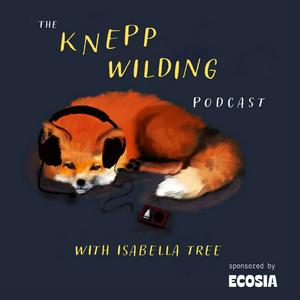
Get the free radio.net app
- Stations and podcasts to bookmark
- Stream via Wi-Fi or Bluetooth
- Supports Carplay & Android Auto
- Many other app features
Get the free radio.net app
- Stations and podcasts to bookmark
- Stream via Wi-Fi or Bluetooth
- Supports Carplay & Android Auto
- Many other app features


The Knepp Wilding Podcast
Scan code,
download the app,
start listening.
download the app,
start listening.







